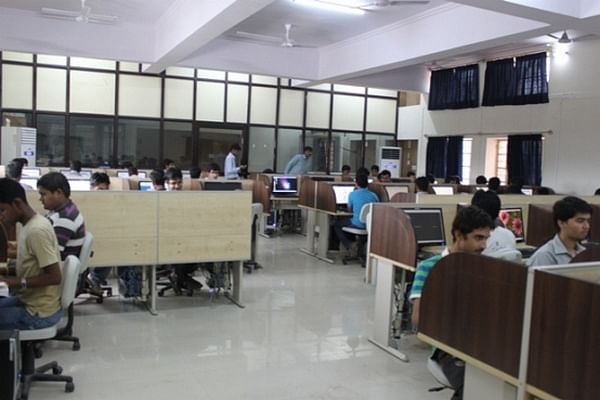Sources said one key element of 2018 exam will be in the form of more single-answer questions than just the usual multiple-choice ones
When the IIT-JEE examination goes online next year, expect a change in the pattern of the test. Plans are afoot to bring in a ‘surprise element’ to the question paper. The idea is to test the students better, as well as to counter the ‘coaching centre’ effect.
Sources familiar with the development told ThePrint that one key element of JEE 2018 will be in the form of more single-answer questions than just the usual multiple-choice ones. It will also be to be considered if a smartphone-based testing format can be developed to address concerns around organising logistics for taking the JEE online, as recommended by the Kurur Committee.
“More single-answer questions will be dispersed with multiple ones to bring in a surprise element to the question paper so we can test candidates better and ensure they apply themselves to arrive at a single answer. While the final details are yet to be worked out, it has been agreed that the question paper must be changed when we go online”, a member of the joint admission board (JAB), that announced the online shift on 20 August, said.
The ‘surprise element’ has to do with the old IIT lament about the absence of ‘raw intelligence’ in students joining in. Many have blamed it largely on the ‘coaching centre’ impact.
Several deliberations have been held to devise novel ways of bringing in students with genuine intellect and self-taught methods of learning and problem solving rather than using the tried and tested coaching prescriptions.
While logistical ease and simple post exam operation stand in favour of the online JEE, some of the IIT directors are learnt to have voiced concerns around possible inadequate computer literacy for candidates from disadvantaged backgrounds. There are also some concerns around the equivalence of multiple session tests.
Incidentally, this is not the first time that the IITs have considered going online with the JEE. In a meeting of the JAB held on August 23, 2014, the IITs had agreed that JEE (advanced) should go completely online from 2016-17. They also considered revisiting the nature of the JEE (advanced) question paper, bringing in a questioning pattern that is objective but drives a student to attempt a whole problem solving exercise and then arrive at a written answer.
The JEE has two parts — JEE (main), which has two papers, both with multi-choice questions. Students who qualify JEE (main) are eligible to appear for JEE (advanced) that determines admission to the IITs. The JEE was revised earlier this year after the HRD ministry announced there would be no weightage for the Class XII marks in calculating the rankings of the JEE (main) examination.



